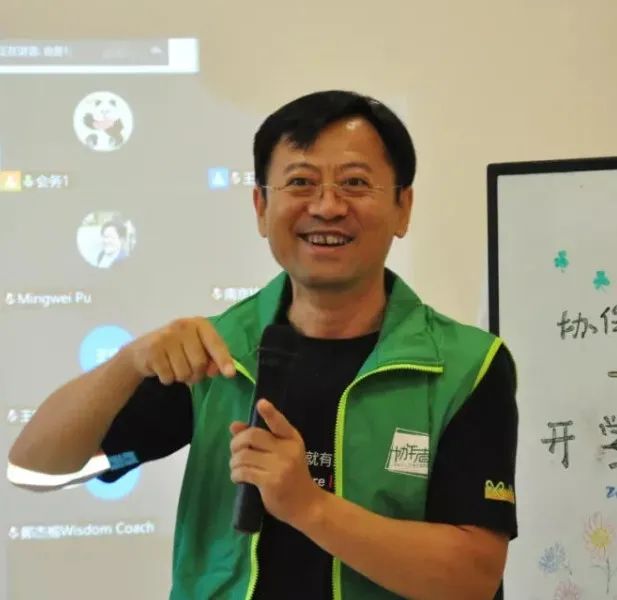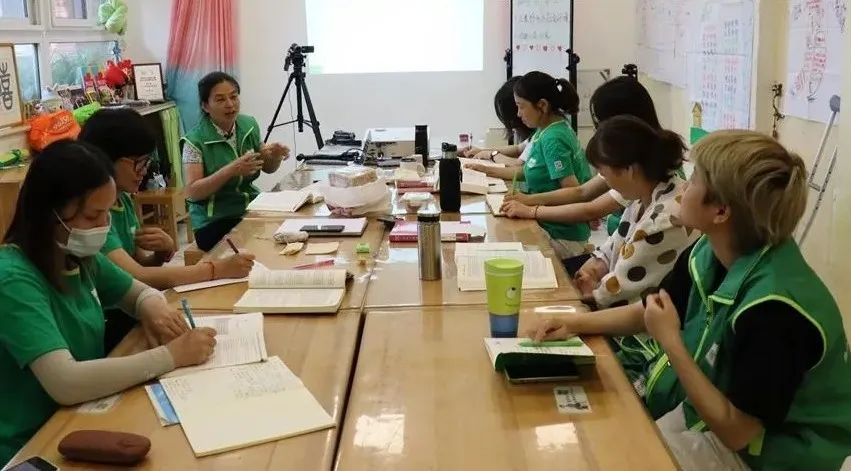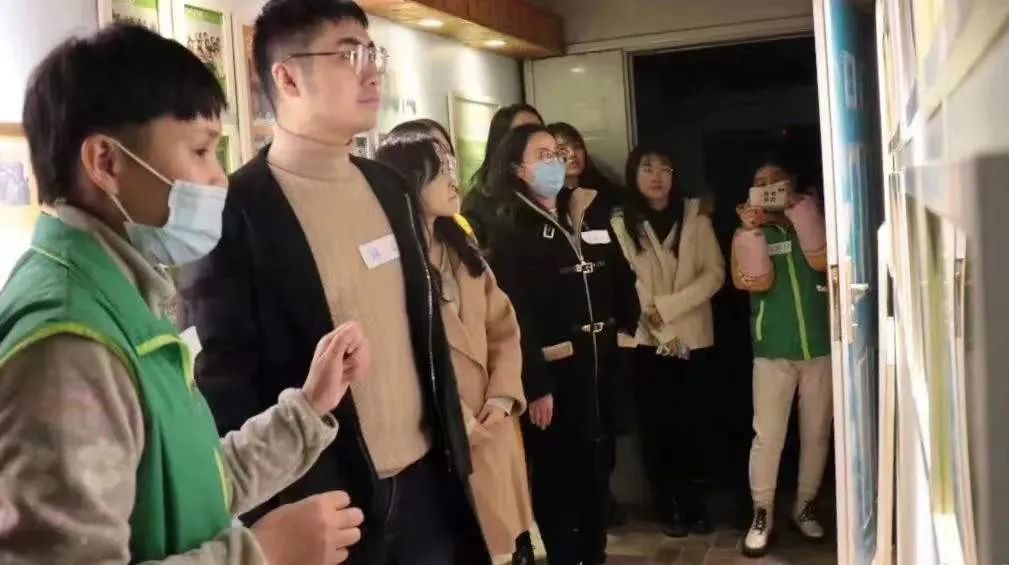 2021-12-24
2021-12-24
 286
286根据路透社报道,中国农民工总量2020年已达2.8亿,占全国总人口的近20%。因为缺少社会保障和单位、社区支持不足等外部原因和家庭经济困难、技能匮乏及社会认同低等内部原因,农民工可能是新冠肺炎疫情期间受到打击最为严重的群体。
The number of rural migrant workers in China reached 280 million in 2020, according to Reuters , representing almost 20 percent of the total Chinese population. During the pandemic, they were possibly the hardest-hit group – due to both external factors, such as a lack of social insurance and poor support from companies and communities, and internal factors, including difficult family situations, a lack of skills and negative social identity.
大量农民工从乡村流动到城市并不是一个新的现象,全世界范围内的城镇化和大量劳动力从乡村到城市的迁移既带来了经济的繁荣也同时引发了社会问题。城镇化和农民工带来的挑战受到了学界和媒体的关注,但是真的回应策略还有待发现。
The huge flow of migrant workers from rural to urban areas of China is not a new phenomenon, and worldwide urbanization and the movement of labor has brought a large proportion of people from the countryside into urban areas, leading to both economic prosperity and social issues. Challenges posed by urbanization and migrant workers have attracted attention from academics and the media, but real solutions are yet to be found.
在这一问题上,国家政策和全球范围的共同努力是至关重要的,公益组织能为农民工提供的支持也有重要影响。几个月前,中国发展简报访问了在农民工服务领域深耕的北京市协作者社会工作发展中心(简称“协作者”)主任李涛。
While national policies and global mutual efforts are vital, support from charitable organizations to migrant workers is also making a difference. Early this year, CDB spoke to Li Tao, founder of the Beijing Social Work Development Center for Facilitators (“the Facilitators”) which is dedicated to the needs of migrant workers.
注:本文为协作者根据 NGOnews发表的文章《Facilitating migrant life: Li Tao interview》翻译。

李涛,北京市协作者社会工作发展中心主任、创始人,协作者学院公益导师,民政部首批全国专业社会工作领军人才,高级社会工作师。
协作者成立于2003年,在“非典”(SARS)期间开展农民工紧急救援服务,开始帮助陷入困境的农民工。对于李涛来说,机构的创立并不是一个全新的开始,而是延续了他在公益方面的多年投入。
The Facilitators was founded in 2003 in the midst of the SARS outbreak. The initial task of the charity was to offer support to migrant workers in Beijing who were in need. For Li Tao, the birth of the organization was not a new beginning, rather, it was a continuation of what he had been dedicating himself to for years.
李涛之前在《中国妇女报》担任记者的经历和他在乡村生活的经验,让他相信他与打工者在情感上是相通的。
Having worked as a journalist at the China Women Newspaper, as well as living in the countryside for a couple of years, Li believes he has an emotional bond with migrant workers.
“我在中国妇女报工作时,采访过很多打工者,她们的故事让我对她们很敬佩,因为她们为城市的便捷生活付出了很多。”李涛说。
“I interviewed a large number of migrant workers when I was working for the China Women Newspaper. I grew to respect them after hearing their stories because in many ways migrant workers have sacrificed a lot to facilitate the convenient lives we lead in the cities,” he said.
在改革开放之前,中国的劳动力并不怎么流动,但从上世纪70年代末期起,大量人口从乡村向城市,从北方向南方,从内地向沿海地区流动。
Indeed, before the reform and opening up policy, China’s workforce was not especially mobile. But since the late 1970s, the country has witnessed a huge flow of labor from villages to cities, from northern China to southern China, and from inland regions to coastal areas.
“当时劳动力的流动还是有很多壁垒的,农民工在那时是第一批遇到这些障碍的人。他们要么为了适应新环境、相关的规则和文化调整自己,要么抗争,有时候会失败,但是通过他们个人的抗争,问题得以浮出水面并能找到解决的办法。现在也还是这样的”,李涛说。他认为劳动力的自由流动已经成为现代中国最重要的问题之一。
“There were many obstacles to the flow of labor at that time, and migrant workers were the first group of people who met those obstacles. They either adjusted themselves to the new environment, rules and culture, or they struggled – and sometimes failed. But through their personal struggles, problems could be exposed and solutions could be identified. And this is still the case today,” said Li, who thinks the free movement of labor has become one of the defining issues of modern China.
因此,他认为,农民工过去几十年的经历将会成为年轻一代的常态。因此,更应该关注政策、整个社会和其他人群是如何对待农民工的,因为毫无疑问地这些方面也会影响到未来的劳动力人群。
Thus, for him, what migrant workers have experienced over the past few decades has since become the norm for the younger generation. Hence, it is critical to pay attention to how migrant workers are treated by policies, society and other citizens — for it will undoubtedly impact the future labor force as well.
“我认为人类社会本质上是人员的不断流动。历史上,人们也是不断的’流向’更适于生存和发展的地方。但是他们一旦到了新的环境,没有当地政府和社区的支持是无法体面生活的。”
“I reckon the movement of labor is fundamental to human societies. Throughout history, humans are constantly ‘moving’ to look for better places to live and develop. But once they move to a new environment, they cannot live decently without support from the local authorities and community.”
李涛当记者时采访的第一批打工妹大多在离开故乡前只接受过很有限的教育。她们的故事和在城市生活的经验深深打动了他,他当时非常想为她们做些什么。1996年,李涛和朋友借了一间教室召集打工者来参加文化学习。随着他对打工群体了解的加深,他开始到意识到,他和他的朋友能帮助打工者提高文化知识,但并不能改变他们的处境或改变他们对自己的看法。
The first group of Li’s interviewees were all female migrant workers, most of whom had only received limited education before saying goodbye to their hometowns. Their stories and experiences in the city struck him deeply and he was eager to do something for them. In 1996, Li and his friends hired a room for the workers and gave them classes to help them catch up on some of the education they had missed out on. As Li got to know the workers better, he started to realize something: the education they were receiving from him and his friends could improve their knowledge, but it couldn’t change their situation or how they perceived themselves.
李涛说,“这是我第一次怀疑,教育是否真的能改变一个人的命运”。
“For the first time, I started to doubt if education could really change a person’s destiny,” said Li.
教育可能可以让一个打工者能读出一本书上的所有字,但是并不能改变雇主的过多要求、低廉的收入、糟糕的工作和生活环境以及需要寄钱回家给家里人的现实,更别说他们还要面对在一个陌生的城市生活所带来的挑战。李涛不断问自己,打工者有多少时间可以真正花在自己身上,是否可以通过“读”来改变自己的命运。
While education might help a migrant to read all the words in a book, it wouldn’t change the reality of demanding employers, low salaries, bad working and living conditions, and the need to send money back home to support struggling families – not to mention the challenges of living in an alien city. Li repeatedly asked himself how much time a migrant worker could really have for themselves and whether there was anything they could possibly read that would change their lives.
“有没有一个专业可以使人更好的认识自己,更好地处理和周围的其他人的关系?这个专业能不能帮他们解决个人的问题也关注到和社会公正有关的更大更广泛的问题?“
“Is there a subject which enables people to become self-aware and helps them appropriately manage the relationships they have with the people around them? And can it help them to address personal problems and care for bigger, wider issues all related to social justice?”
李涛在两年后找到了答案。1998年,中华女子学院邀请他担任社工督导。他之前没有意识到他所做的工作和社会工作这个专业有关,便赶紧找来相关的课本了解相关的理念、原则和案例。很快他就明确了社会工作就是他一直在找寻的答案。
Li found his answer after two years of searching. In 1998, China Women’s University reached out to him and invited him to take the position of social work supervisor. Without realizing what he had been doing was partially related to the subject of social work, Li hastily looked for textbooks and read up on the relevant concepts, principles and cases. It quickly became clear to him that social work was the answer he had always been looking for.
“我印象最深的是赋能理论和优势视角,可以帮助受助者通过发掘个人潜能和帮助他们提升能力来解决他们的问题,因为他们碰到的问题大多是因为社会不平等造成的”,李涛说。
“What impressed me the most were the theory of empowerment and the strengths perspective; these help the service recipients solve their problems, which are mostly caused by social inequality, through exploring individuals’ abilities and facilitating them to gain the power to improve their lives,” said Li.
在上世纪90年代,大多数打工者是自己来到大城市的。当时认为他们一旦存了一些钱就会回乡似乎是合理的,但是让人意外的是,随着新千年的到来很多回乡的打工者稍后又回到了城里,而且是和家人一起回来的。
In the 1990s, most migrant workers came to big cities on their own. It was sensible to think that once they had made some money, they would return home. However, to people’s surprise, as the new millennium approached it became clear that after returning home, many would later come back, but this time with their family.
2010年协作者展开了一项针对农民工的调查,其中的一个重要研究问题是让农民工感到幸福的主要因素。让人们很吃惊的是,受访农民工选择最集中的不是收入水平相关的因素,而是与家人在一起。这之前对于幸福感会和金钱相关的假设,反映了人们对农民工群体的了解非常有限,这个结果也让李涛开始思考一个长久以来困扰他的问题——如何能真正帮助到城市里的这些打工者。
In a piece of research carried out by the Facilitators on migrant workers in 2010, the key research question asked what made migrant workers happiest. To everyone’s surprise, the most popular answer did not relate to earnings, but to spending time with family members. This “money assumption” reflected how little people knew about migrant workers as a group, and the result caused Li Tao to consider a question that had always lingered in his mind: how to offer genuine help to migrants working in China’s cities.
从社会工作的角度讲,最理想的救助方式是赋权增能。也就是说,在特定的社会物质条件下,社会工作者帮助服务对象认识到自己的能力、加强他们与家庭和社区的关系,并通过提供必要的渠道和资源重塑有效的社会功能。
When it comes to social work, the most ideal aid comes in the form of “empowerment”. Namely, in a given socio-material situation, social workers help their clients to realize and achieve their capabilities, strengthen their relationships with family and community, and restore successful social functioning through the provision of necessary channels and resources.
李涛和协作者团队从一开始就在尝试为打工者赋权增能的新方式,其中之一是培育打工者成为社会工作者,近20年的时间里他们一直在尝试。最初协作者会培育对社会工作感兴趣的打工者成为社区服务项目的志愿者,之后再逐渐为志愿者提供参与其他社会工作项目的机会。他们中有从农民工转化来的志愿者后来加入了协作者,成为全职员工,并通过专业认证考试获得了社会工作者资格。协作者介绍,农民工经培训和实践取得社会工作者资格的员工人数已达到8人。从2011年起,协作者决定要为希望从事公益的农民工提供更多社会工作教育和专业实践方面的支持。
Since the very beginning, Li and others working at the Facilitators have tried to explore new ways to empower migrant workers. Training them to become social workers is one of the methods they’ve used; it’s something they’ve been doing for nearly two decades. At first, migrants who were interested in social work were trained to become volunteers in community-based programs, and gradually, volunteers were given opportunities to get involved in other social work programs. Some of them also ended up joining the Facilitators and became full-time staff; there were also others who eventually became qualified social workers. Data provided by the Facilitators shows that there has been eight migrant workers who have become qualified social workers after receiving training and experience from the Facilitators. But in 2011, the charity decided to do more practical work to provide social work education and professional training for migrants who were keen on joining the profession.
但是许多打工者没有接受过基本教育,他们能够完成培训成为社会工作者么?李涛的答案是,绝对可以。
But since many migrants lack basic education, are they able to handle the training to become social workers? The answer for Li is an absolute yes.
“作为一家公益机构,我们一直强调专业精神,这样才能保证我们的服务质量不断提高。但我们努力避免精英主义,不应该只是有大学学历的人才能成为社会工作者。我们相信打工者和其他人一样, 有独立思考和行动的能力,也能做好他们自己的选择,只是因为经济等方面的原因,他们的能力和选择受到了制约。对于许多打工者来说,他们因为家庭的原因被迫放弃了接受更好教育的机会,但这并不意味着他们没有学习、思考和决定自己生活道路的能力。虽然理论学习对于社会工作专业非常必要,但真正的专业精神是通过实践来实现的”。
“As a social work charitable organization, one thing we always pursue is professionalism, through which the quality of our services will be improved. But we are keen to avoid elitism, meaning only people who have received a proper university education can work as social workers. We believe like everybody else, migrant workers are agents who have the ability to think and act independently and make their own choices. However, due to factors such as the economic situation, their abilities and choices are restricted. For many migrants, not receiving adequate education was a choice they were forced to make for their family. But this doesn’t mean they are incapable of learning, thinking or deciding on their own paths. And while theoretical training is necessary for social work, true professionalism is achieved through practice.”
李涛介绍,中国开设社会工作专业的大学超过300所,每年社会工作专业的大学毕业生约4万人,但遗憾的是,只有很小比例的毕业生会从事一线社会工作专业服务。政府自2006年以来就投入大量资金,把发展社会工作、培养大量社会工作者当作一个关键任务来推进,但是成效与现实需要还有距离。借鉴发达国家和地区社会工作专业人才占总人口千分之二以上的比率,我国社会工作人才占总人口万分之三,缺口巨大。
According to Li, there are more than 300 universities in China that offer social work programs. Each year, approximately 40,000 social work students graduate from university. Unfortunately, among those graduates, only a tiny percentage go on to pursue social work as a career. Developing social work and training a large number of social workers has been regarded as a “vital task” by the central government since 2006, with considerable investment made since. However, the effort has not achieved significant results, and there are currently less than three social workers among every 10,000 people in China – compared with an average of two per 1,000 in developed countries.
“这是很矛盾的地方”,李涛说,“一方面许多社会问题需要大量的社会工作者;另一方面,许多有才华的年轻人接受了良好的教育,却不愿意成为社会工作者。”
“There is an evident dilemma,” says Li, “on the one hand, many social issues require a huge number of social workers; on the other hand, many talented young people, after receiving a good education, are reluctant to become social workers.”
但在服务对象中,李涛看到了很高的参与公益的热情。
But among his service users, Li has noticed a greater willingness to enter the profession.
“我们看到很多打工者在了解了我们的项目和社会工作专业之后,有强烈的愿望想要帮助他们自身所在的群体,只是没有机会接受培训,也没有相关的资源。”在意识到打工者有参与的动力之后,李涛和他的同事们希望为打工者提供培训的决心更大了。
“We have noticed that many migrant workers, as they got to understand our programs and the subject of social work, have a strong desire to help their own group, but find it difficult to access training and resources.” Realizing migrant workers have the motivation to serve has strengthened the determination of Li and his colleagues to offer training.

协作者学堂“人类行为与社会环境”课程学习中
于是协作者在2011年在广东珠海开展了一个试点项目。他们招募了11名生产线上的工人参加为期一年的社会工作培训。这些工人在参加培训时,白天继续在工厂做全职的工作,到晚上再进行学习。
The Facilitators started a trial training program in 2011 in Zhuhai, Guangdong Province. They recruited 11 people who were product line workers to join the one-year social work training program. While training, the workers continued in full-time employment during the day, and could not begin studying until the evening.
根据社会工作专业的特点,除了理论学习,学员还需要完成300小时的实践,即需要他们在社区中开展自己的项目。他们会在社会工作督导的支持下,完成包括项目设计、评估、结项报告在内的完整项目流程。
Based on the nature of the subject, in addition to studying theories, the trainees had to complete a 300-hour internship which required them to work in the community and run their own programs. The self-run programs were supported by supervisors, and the whole process involved program design, assessments and a final report.
这一年的培训成果在第二年经受了全国社会工作者职业水平考试的检验。在11名参加培训的打工者中,有3名通过了考试。“这三个人有高中文凭,符合报考要求,其他几个人没有报考资格“,李涛解释说。
The results of the intense year-long training were assessed by the National Social Work Examinations held the following year. Among the group of 11 migrants, three passed the exams. “These three were eligible to take the exams because they had high school diplomas, but the others did not,” Li explained.
虽然国家的社会工作者职业水平认证对报考者的学历有限制,这个结果还是给李涛和他的同事们带来了更多的希望。“通过率出乎意料的高!“他说道。这三名通过考试的打工者中,有一名之后入职珠海协作者,已经有超过七年的工作经验,并且获得了“广东省社工之星“称号。
Despite the entry restrictions on the national social work exams, this result has given Li and his colleagues much hope. “The pass rate was surprisingly high!” he exclaimed. One of the three has now been working with the Zhuhai Facilitators for more than seven years and was given the Guangdong Excellent Social Worker Award.
打工者取得的成绩,证明了他们有能力通过学习成为专业人士。他们的经历让他们有天然的优势,他们是真正理解打工者群体的人。
The success achieved by migrant workers has proven that they can learn and become professionals. And their backgrounds give them a clear advantage: they have a real understanding of migrant workers as a group.
但是李涛介绍说,创建协作者学堂以培养农民工成为社会工作者的想法直到去年才落地。在协作者学堂成立之前,协作者做了很多不同的尝试,也曾经去加拿大的社会工作机构进行学习,但是李涛当时还是觉得他们没太准备好。
However, the idea of setting up the Facilitators’ College, a facility to train migrant workers to be social workers, did not become a reality until last year, according to Li. Prior to its establishment, the Facilitators explored a number of different options; they also went abroad to visit social work institutions in Canada. Yet somehow, Li felt they were not quite ready.
“我们的经历给了我们一个深刻的教训:打工者在城市里接受教育,往往需要放弃的不只是他们的业余时间,他们常常需要放弃的是谋生的途径。“
“Our experience has taught us a stark lesson: migrant workers often don’t just need to give up their spare time to get an education in the city – they often need to give up some of their ways of earning a living.”
李涛认为,如果不能解决经济问题,让穷人来受教育的挑战太大了。“尽管我们在珠海的尝试让我们可以为打工者提供更多的专业培训,我们完全理解这并不是一个可持续的模式。“
Li believes that without solving the problem of finance, asking the poor to get an education will always be a challenge. “Although our trial in Zhuhai paved the way for us to offer more professional training for migrant workers, we completely understand that this model cannot last.”
最初协作者的设想是为报名学习的打工者提供全职学习社会工作的机会并提供奖学金资助,但是没有资助这一设想很难实现。李涛介绍寻找资助是个很大的挑战。“我们当时拜访了几家基金会,向他们介绍协作者学堂。他们都没有资助我们,觉得这个想法未必可行。“
Initially, the Facilitators envisaged that the training college would provide full-time, sponsored, professional social work training to any migrant worker who applied. However, this cannot be fully realized without adequate funding. According to Li, raising funds has been a challenge. “We visited a number of foundations and introduced the social work college to them; none of them wanted to support us. They doubted the feasibility of the idea.”
李涛觉得很多国内公益领域的资助,特别是面向个人的能力建设和领导力培养的项目,大都是针对受过良好教育的、未来会有机会成为领袖的青年才俊。
Li feels that programs offered by Chinese charities, particularly in the areas of capacity building and leadership programs for individuals, mostly target young, well-educated people who are considered as potential future leaders.
直到2019年10月,协作者入围中国民生银行联合中国扶贫基金会共同发起的公益创新项目——“ME公益创新资助计划”,情况才得到改观。公益机构可以向ME公益创新资助计划申请最高达人民币50万元的为期两年的项目资助。申请ME公益创新资助计划时,协作者把协作者学堂的工作和社区服务项目进行了整合,明确了进入项目的打工者会得到培训和补贴。项目要求两名接受培训的打工者应用所掌握的社会工作技能服务流动人口家庭及儿童。这一项目申请获得了ME项目的认可,获得了相关资助。2020年9月,学堂招募了第一批学员并为这两名学员提供了全日制培训和每月4000元的补贴。
Things did not improve until October 2019 when the China Foundation for Poverty Alleviation (CFPA) and China Minsheng Bank (CMBC) co-launched the ME (Minsheng Energy) Charity Innovative Funding Project, aiming to explore new ways to support the country’s charitable organizations. Organizations can apply for ME funding of up to 500,000 yuan ($78,346) for their programs, with the money distributed over two years. To apply for the scheme, the Facilitators modified the social work training college into an urban community program. They also made it clear that two migrant workers would be admitted to the program and receive training and compensation. In this program, the two workers were required to apply skills obtained during their training to serve migrant workers’ families, especially their children. Their proposal won the approval of the ME committee, and the Facilitators eventually received funding. In September 2020, the college recruited its first two full-time social work students, providing them with full-time training and a monthly stipend of 4,000 yuan.
协作者学堂项目的开启是里程碑式的成绩,但这也只是协作者支持农民工的方式之一。李涛认为有些事情是公益机构可以推进的,其他社会中根植的因素还是需要交给时间来改变。
Starting the social work training college is a milestone achievement, but it is just one way in which the Facilitators are supporting migrant workers. Li understands that there are things that the charity can help with, but there are other issues rooted deeper in society that only time will change.
协作者曾经尝试过推荐接受过社会工作培训的打工者去申请企业人力资源方面的工作,这样他们可以应用他们的社会工作技能帮助那些同为农民工的同事。然而,很多从事人力资源工作的人对这样的想法并不认同。
The group once tried to recommend some migrant workers who had received social work training to apply for human resources (HR) jobs, with the idea that they could use their social work training to help migrant employees. However, many HR staff were resistant to the idea.
“企业告诉我们,如果他们允许打工者加入人力资源部门,那他们现有的人力资源的人员都会辞职,因为他们都接受过良好的教育,不少人还有海外教育背景。他们觉得自己是学习了很多年付出了很多才获得的职位,不是没有完成高中教育、只接受了一些社会工作培训的打工者也可以做的。”
“The employers told us that their HR staff would all resign if they allowed migrant workers to join their HR department. These HR staff are all well-educated and some of them have international experience as well. Yet they do not think migrant workers who did not finish high school and only received some social work training deserve the positions that took them years of study and investment to gain.”

协作者学堂学员与北京大学法学院学生对话交流
态度的改变是需要时间的,但是李涛相信推动社会工作的发展也很关键。尽管这个领域很宽泛,但他觉得小学生也应该学习社会工作的核心理念和原则。
Attitudes take time to change, but Li believes that promoting social work is the key. Despite the breadth of the subject, he feels that the core values and principles of social work can be taught to children of primary school age.
“这个领域的核心价值观,比如对人的尊重、善良、助人、接纳及社会公正等,不光是大人应该学习,也应该从小教给孩子们,并在每天的社会交往中实践。如果社会工作可以进入学校课程,大家对待像打工者这样的群体的态度,和大家与打工者群体的关系,一定会有所改变。如果人们的态度可以改变,那打工者的生活也可以发生改变。”
“The subject upholds a few core values: respect for humanity, kindness, willingness to help others, acceptance, and social justice. These qualities are not things that only adults are able to learn; they should be taught to everyone from an early age and practiced in everyday relationships. If social work can be added to school curriculums, our attitudes toward and relationships with groups such as migrant workers, will certainly change. If people’s attitudes can change, the lives of migrant workers can change.”
打工者这时要担心的就不仅是就业了,对于那些生活困难的打工者来说,照顾孩子、子女教育和医疗都是新问题。二十年前,政策和社会的支持对于这些新市民来讲并不太多,正是在这样的背景下协作者成立了。
Migrants now had to worry about more than employment. Childcare, education, and healthcare, were just some of the new concerns for migrants already leading difficult lives. Two decades ago, support from policies and society was not always available to these city newcomers, and it was against this background that the Facilitators was founded.
 表情
表情
 最热
最热































